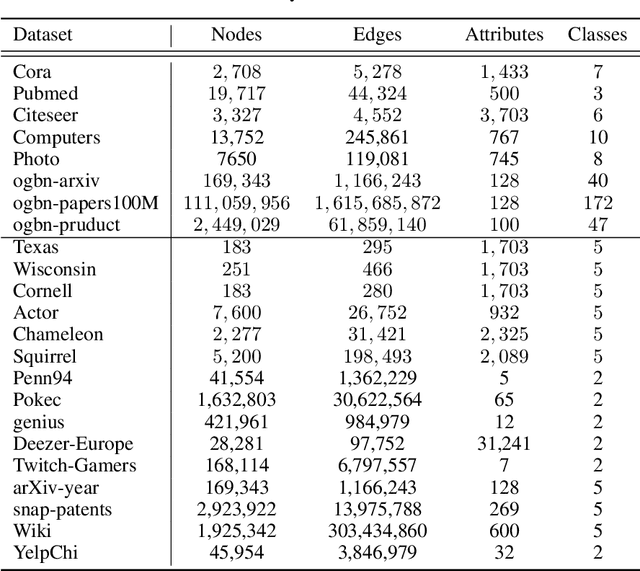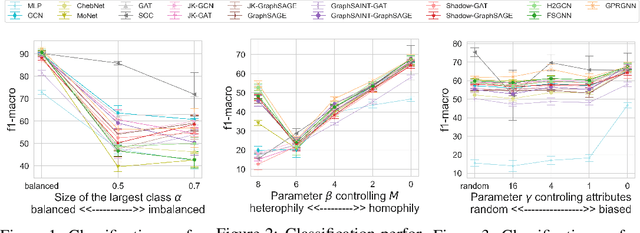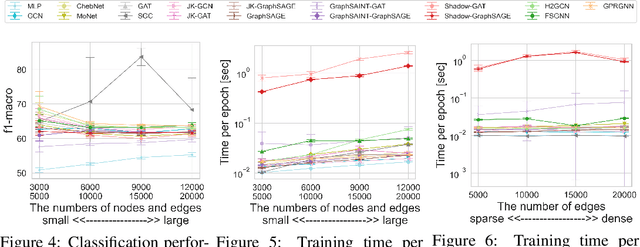Beyond Real-world Benchmark Datasets: An Empirical Study of Node Classification with GNNs
Paper and Code
Jun 18, 2022



Graph Neural Networks (GNNs) have achieved great success on a node classification task. Despite the broad interest in developing and evaluating GNNs, they have been assessed with limited benchmark datasets. As a result, the existing evaluation of GNNs lacks fine-grained analysis from various characteristics of graphs. Motivated by this, we conduct extensive experiments with a synthetic graph generator that can generate graphs having controlled characteristics for fine-grained analysis. Our empirical studies clarify the strengths and weaknesses of GNNs from four major characteristics of real-world graphs with class labels of nodes, i.e., 1) class size distributions (balanced vs. imbalanced), 2) edge connection proportions between classes (homophilic vs. heterophilic), 3) attribute values (biased vs. random), and 4) graph sizes (small vs. large). In addition, to foster future research on GNNs, we publicly release our codebase that allows users to evaluate various GNNs with various graphs. We hope this work offers interesting insights for future research.
 Add to Chrome
Add to Chrome Add to Firefox
Add to Firefox Add to Edge
Add to Edge